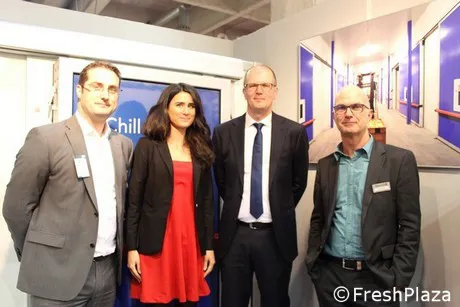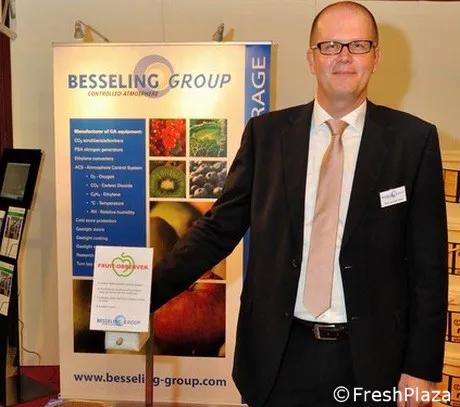
Martijn Meeuwse.
"The impact of the ban is clear in Eastern Europe. Luckily we have many clients that are not located in Europe, so the ban did not affect us that much. What is more, Russia still needs raw material from us, so the producers and traders definitely did worse that us," explains Martijn Meeuwsee, management director for Ribbstyle.

Left to right: Martijn Meeuwse (RibbStyle), Francesca Gentilini (interpreter), Erik Van Der Zwet (Besseling Group) and Johan Muis (Salco).
Erik Van Der Zwet, from the Besseling group, is of the same opinion. "The Russian ban does not affect us directly because we supply equipment rather than produce. But is has had an effect on our clients, who cannot sell their fruit there and therefore cannot make the money necessary for new investments."

Erik Van Der Zwet.
Johan Muis, sales manager from Salco, commented that "the ban does not affect us directly, but many Dutch companies that sell apples had problems."

Johan Muis.
"Nowadays you need to work at an international level if you want to survive. You can no longer rely on European or western countries. Many markets are growing - India, Chile, China... they definitely work on bigger scales too, and have the funds to make their projects work," adds Meeuwsee.
"Canada, Brazil, India and China are doing well, and so are the US. We have a project in British Columbia and another in Michigan. It is a country with great opportunities," explains Van Der Zwet.
"We too have been working with Brazil, India and America in the past few years. India especially has grown a lot."
